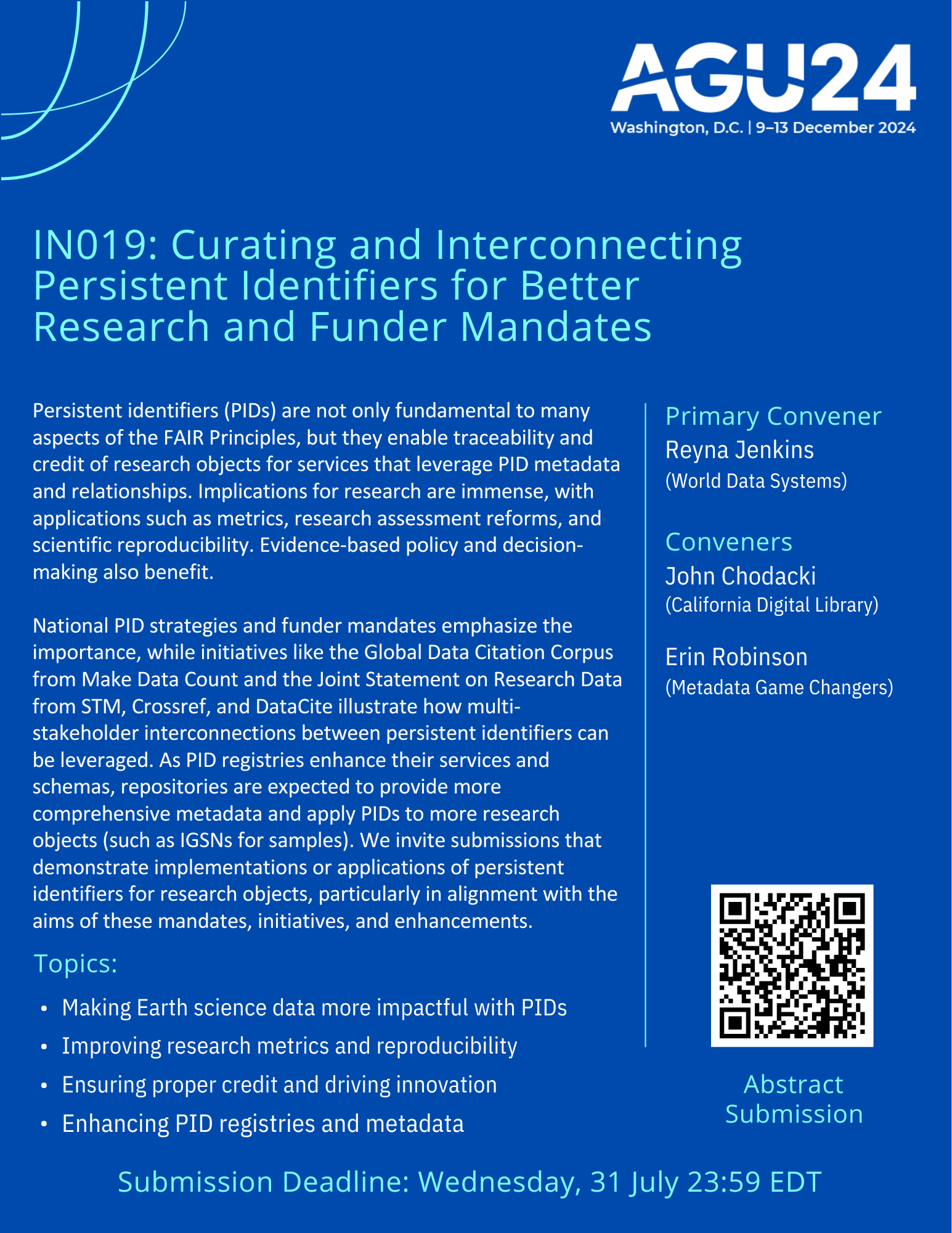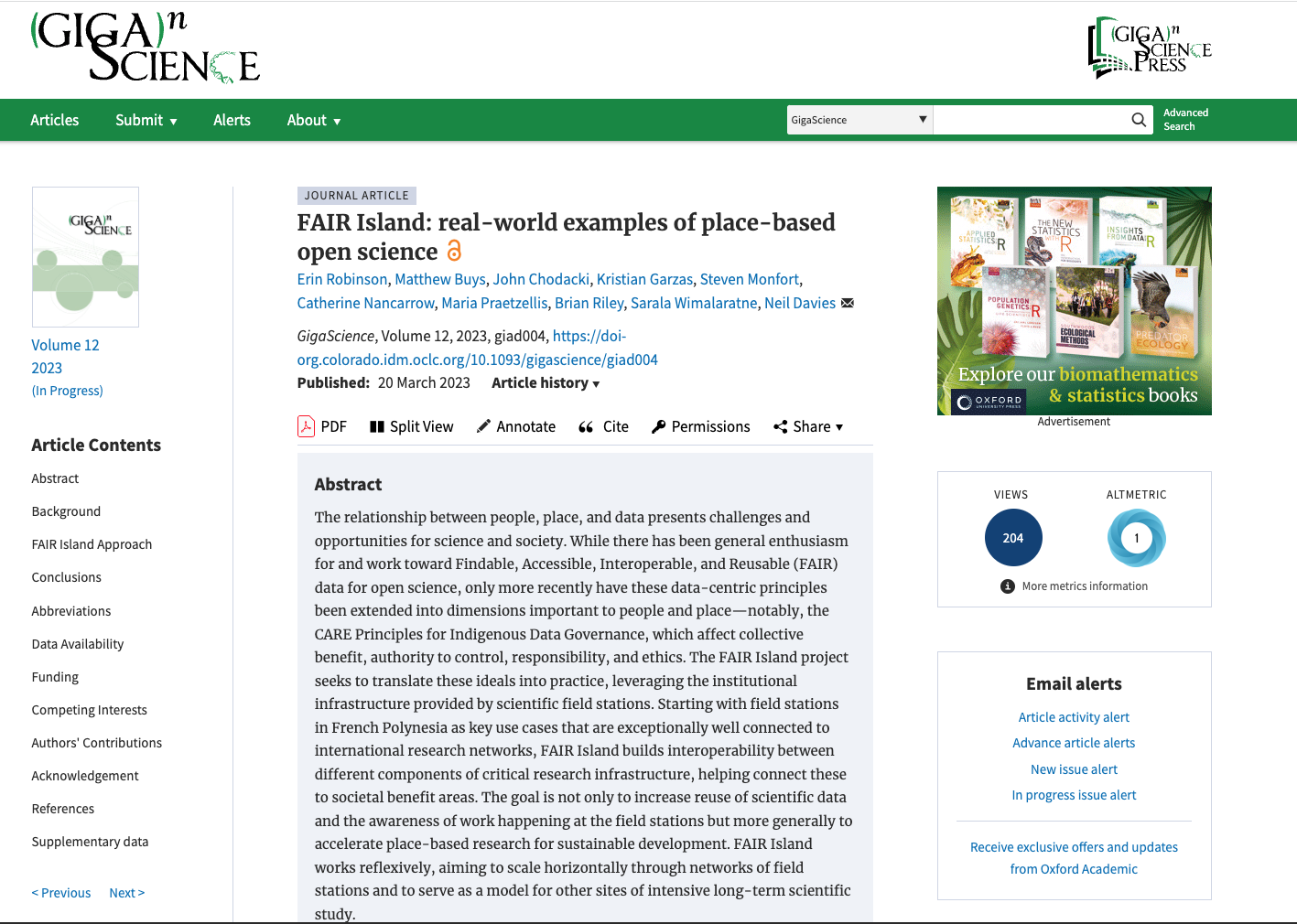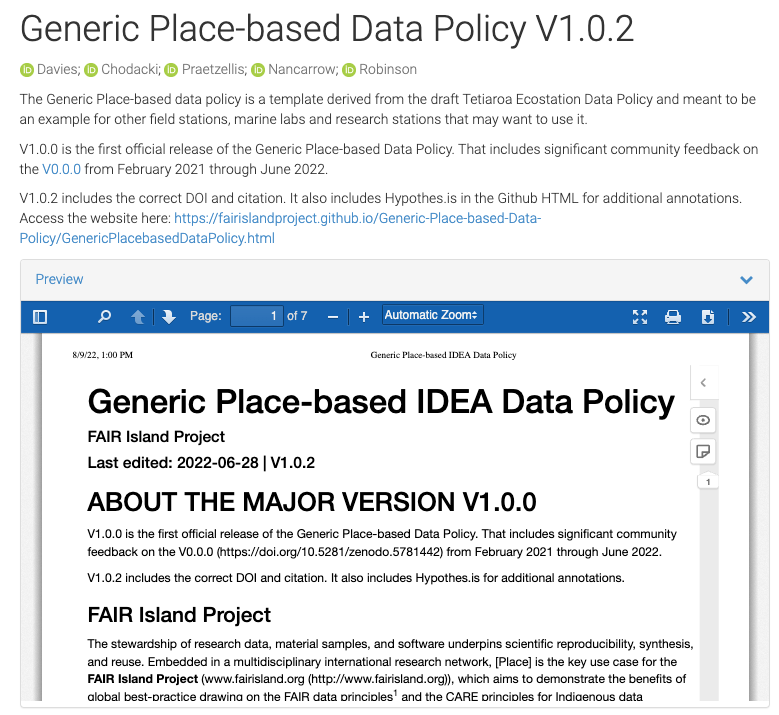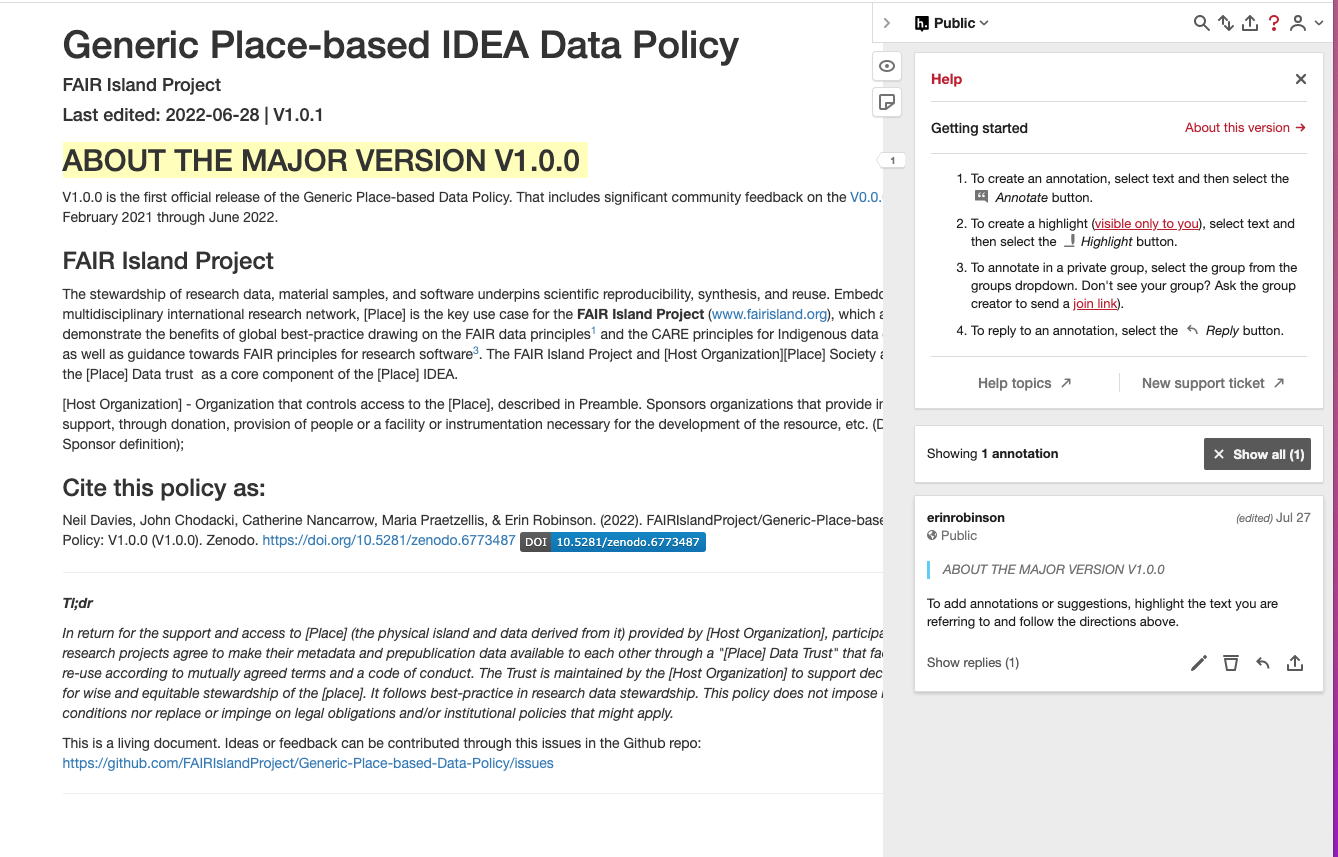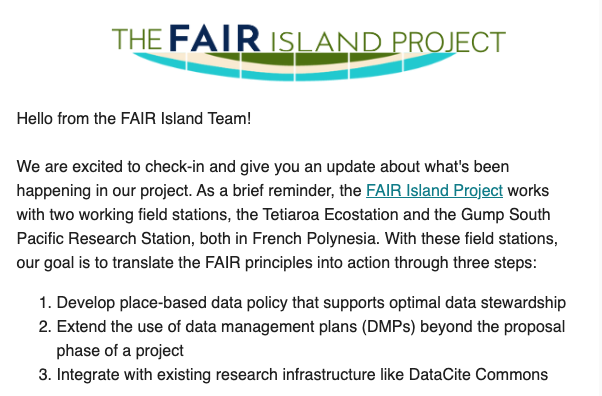The FAIR Island
Project
Real-world examples of FAIR and CARE at field stations
The relationship between people, place, and data underpins some of the greatest challenges, and opportunities, of the 21st century. Relationships between human communities and their natural and built environments are increasingly mediated through digital data. In addition, there has been general enthusiasm for, and work towards Findable, Accessible, Interoperable, and Reusable (FAIR) data for Open Science.
The FAIR Island Project translates FAIR Data Principles (Wilkinson et al., 2016) and the CARE Principles for Indigenous Data Governance (Carroll et al., 2020) into practice for scientific field stations through the development of place-based data policies and critical research infrastructure centered on machine-actionable data management plans.
About the Project
Using working field stations that are linked to a range of international research networks in marine and terrestrial environments, the Project builds interoperability between pieces of critical research infrastructure
Field Station FAIR & CARE Toolkit
Building on experience with the Tetiaroa Ecostation, we have developed a toolkit which includes a generic place-based data policy for reuse and modification at other sites, details on sharing projects, and more.
Researcher Guidance
The FAIR Island Project provides research guidance on using identifiers like ORCiDS for peoples, linking DMPs to projects, and sharing research outputs back to the field station.
Integrate with Existing Infrastructure
Integration with other systems is a core requirement and scalable benefit of the Project. These PID connections facilitate further development of the DataCite Commons interface as a field station dashboard. Additional social network analysis is also possible.
Participating Field Stations
The FAIR Island Project started as a partnership between the California Digital Library (CDL), the University of California, Berkeley, Gump South Pacific Research Station and the Tetiaroa Society’s Ecostation.
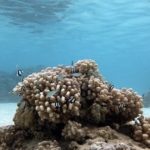
Tetiaroa, French Polynesia
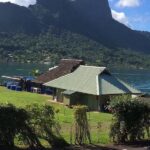
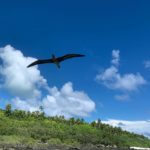
Interested Field Stations?
If your site is interested in collaborating please send us an email at info at fairisland.org.
Recent Outputs
Here are some of our recent activities. Find all of our published outputs in our Zenodo community.
(Publication) A Programmatic and Scalable Approach to making Data Management Machine-Actionable
Praetzellis, M., Buys, M., Chen, X., Chodacki, J., Davies, N., Garza, K., … Robinson, E. (2023). A Programmatic and Scalable Approach to making Data Management Machine-Actionable. Data Science Journal, 22(1), 26. https://doi.org/10.5334/dsj-2023-026
(Publication) FAIR Island: real-world examples of place-based open science
iPlaces Tetiaroa MVP
A minimum viable product example of a field station journal. It highlights recent scientific, legal and cultural work going on at the field station. Blog describing this work.
Stay in touch
There are lots of ways to support the FAIR Island Project. We are looking to integrate with existing infrastructure projects to show the power of reuse. We love working with students to provide a real-world project to learn from. We are also actively looking to expand the field sites that we work with. If any of this sounds interesting, please connect!
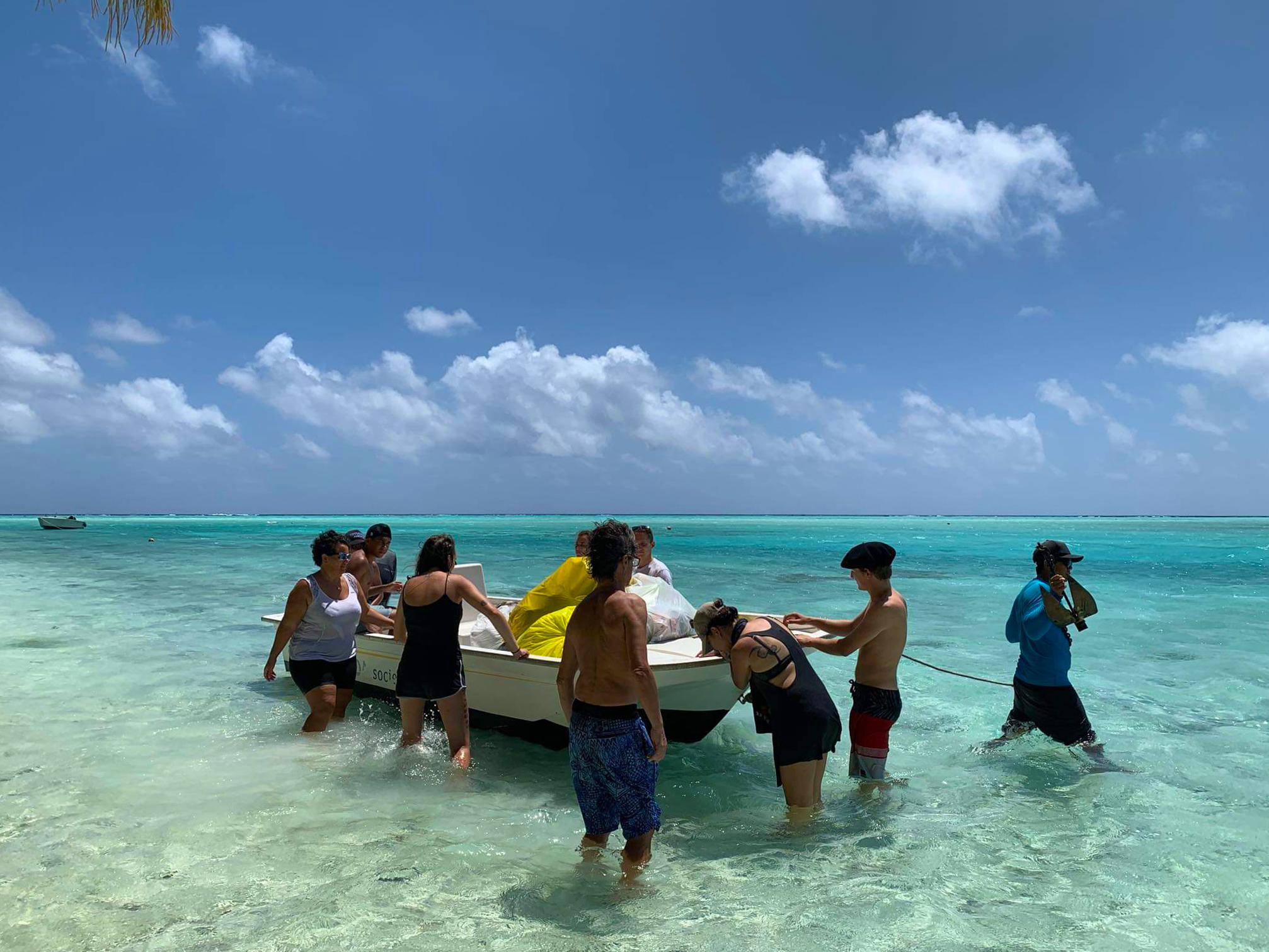
Contact Us
Questions, comments, or advice?
info@fairisland.org
Join the iPlaces Newsletter
Legal Disclaimer
Privacy Policy | Accessibility
Except where otherwise noted, content on this site is licensed under a Creative Commons Attribution 4.0 International license.
